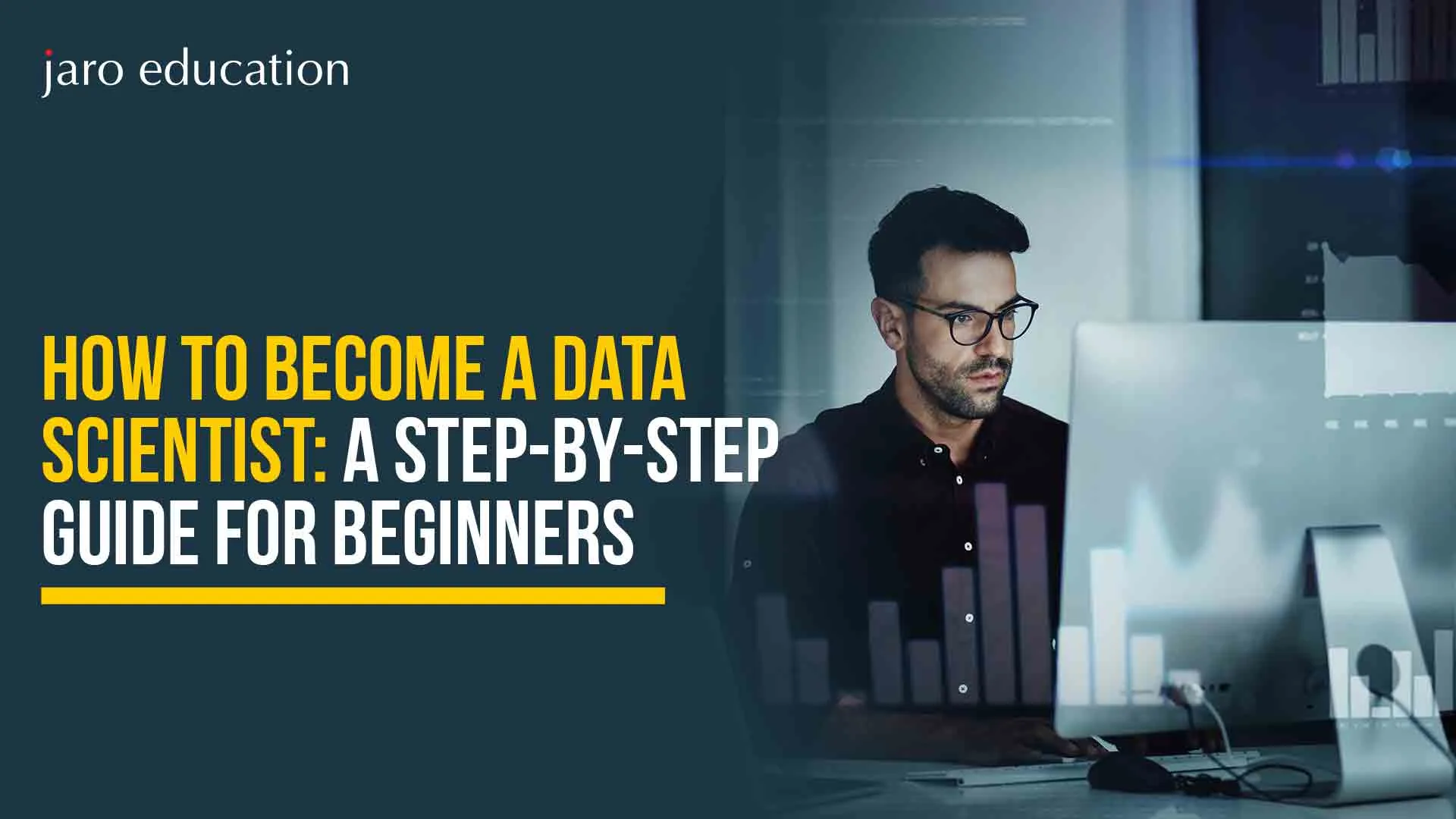How to Become a Data Scientist: A Step-by-Step Guide for Beginners

Table Of Content
- What is Data Science?
- What Does a Data Scientist Do?
- How to Become a Data Scientist in India
- How to Become a Data Scientist After 12th
What is Data Science?

*medium.com
Data science is a multidisciplinary academic field that leverages scientific methods, algorithms, processes and programming to uncover knowledge and insights from structured and unstructured data. It integrates disciplines like statistics, machine learning (ML), data analysis, and visualisation to extract hidden patterns, trends, and relationships in data.
Data science is crucial for informed decision-making, forecasting, and problem-solving across industries. This allows businesses to make better data-driven decisions, extract valuable insights and inform strategies, which leads to anticipating market trends, optimising operations, and improving customer satisfaction.
What Does a Data Scientist Do?
A data scientist works to analyse complex data sets deeply, utilise statistical and machine learning techniques, and build predictive models to determine data-driven decision-making. Data scientists perform several different tasks and take on various roles, including data acquisition, data cleaning, exploratory data analysis, modelling, and communication.
Data cleaning is crucial in the data science roadmap, ensuring accurate, consistent, and complete data for analysis. Without cleaning, data analysis results can cause unreliable models and misleading insights. Therefore, in order to clean and prepare data for analysis, data scientists utilise statistical methods and engineering skills.
An exploratory data analysis is an essential step in any data analysis project. It includes investigating a dataset to gain insights, uncover patterns, and find variances. Data scientists usually collaborate with other team members, such as data engineers, data analysts, IT architects, application developers, and business stakeholders, to collect, analyse data and derive actionable insights.
How to Become a Data Scientist in India

How to Become a Data Scientist After 12th
How to Become a Data Analyst

Final Thoughts
This blog on ‘how to become a data scientist’ highlights essential skills and subjects required for a rewarding career in the field of data science. Becoming a data scientist requires continuous learning, devotion, curiosity, skill development and practical experience. However, developing technical skills, like programming languages, machine learning and data visualisation, and gaining hands-on experience through projects or internships are some of the most important steps for a successful career in data science.
Now that you know ‘how to become a data scientist in India’, ‘how to become a data scientist after 12th, and ‘how to become a data analyst’, elevate your career in the field of data science by enhancing your knowledge and developing your skills with our course Professional Certificate Programme in Advanced Analytics & Business Intelligence by IIM Kozhikode. For more information about the programme and the enrolment process, visit Jaro Education now!
Frequently Asked Questions
Find a Program made just for YOU
We'll help you find the right fit for your solution. Let's get you connected with the perfect solution.

Is Your Upskilling Effort worth it?

Are Your Skills Meeting Job Demands?

Experience Lifelong Learning and Connect with Like-minded Professionals

